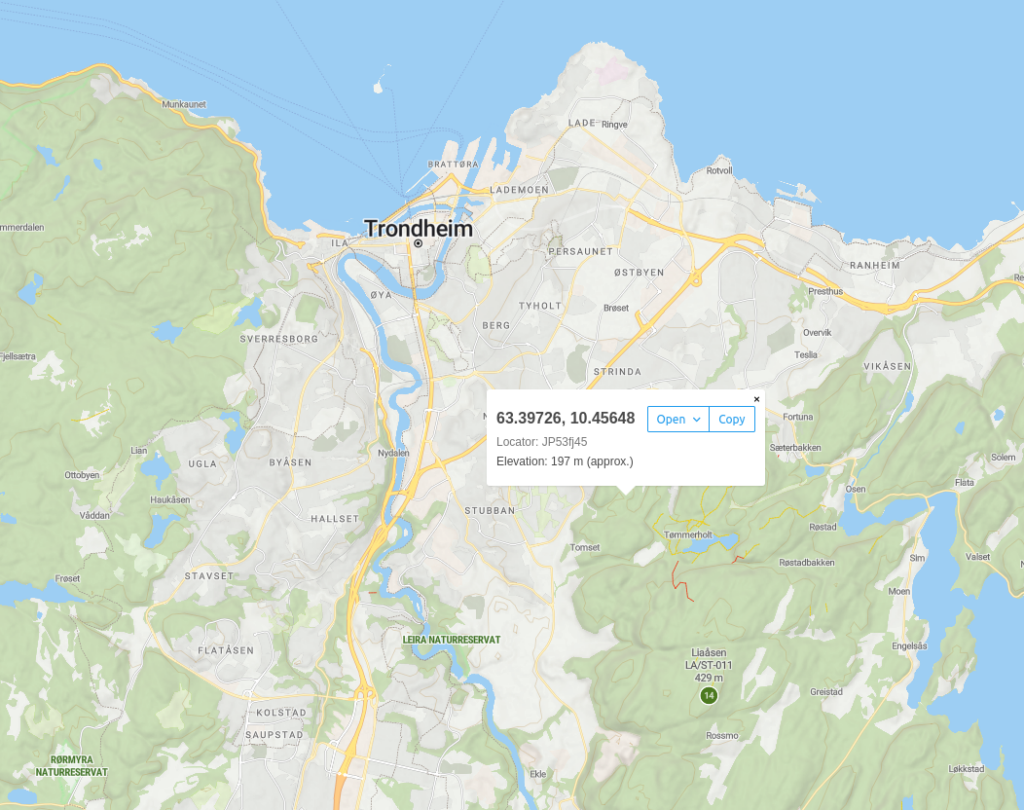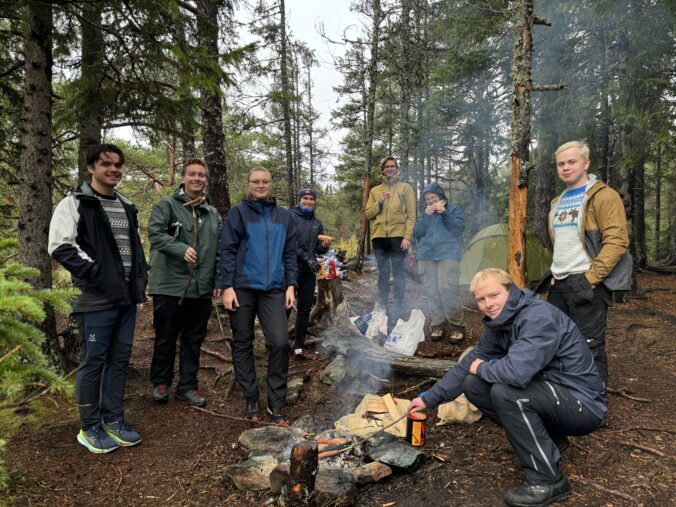We have a great interest in SOTA in the club, but we also find time for easier portable trips. In the last few years, we have had nice portable operations where we also invited the license course participants to for example Gråkallen and Lavollen. On Sunday 6th October we returned to a classic easy-to-reach spot, Fulglemyra. We have earlier had portable trips to the same destination, both in summer, autumn, and twice in winter.

The weather forecast this time predicted rain. A lot of rain. This meant we would dress appropriately, but it was more challenging to dress up the radios. The solution we ended up with was to use LB5DH’s tent for the shack and hope the antennas and tuners were sufficiently water resistant. LB5DH and LB9XJ had already used the same tent to protect the radio at their summertime activation of LA/ST-072.

As often before, we chose to bring our FT-891 and FT-857D. Both are lightweight and convenient for this kind of operation. The only drawback is that both lack ATUs, but we solve that by using external ATUs. Our primary antenna was our inverted-V doublet, based on our Heathkit tuner. The best place to have it was out in the open area, which, of course, was a very wet marsh in this case.

The following antenna was an on-the-spot improvised dipole for 20m, based on some wire from our workshop and a leftover centerpiece from the spring cabin trip. This was, however, not a balun, so we deviated from good dipole practice. We suspended it from two trees, one where we climbed up and one where we threw a line up. It was difficult to get the dipole to the appropriate height, but we got a good 7-9 meters height. LB6GH had fixed our LDG automatic tuner, which we tried with the 20m dipole. It seemed to work for this antenna and this band, so we concluded that it now works (based only on this minimal dataset).

We then got on the radio, but the conditions were not great. Neither band was very active, and without any reason for answering us, few did. Everyone got extensive experience with calling CQ, but not everyone got a QSO. Throughout the whole day, we got 5 QSOs, of which 1 was CW and the rest SSB.

After a while we decided to take down the 20m dipole and instead try our luck with a 15m wire vertical. This was also hanging from a tree. We thought that our bad luck on 20m could be due to our improvised antenna, but 20m on the doublet was not doing great either.

This kind of easy-access portable trips allows for some niceties compared to the average SOTA activation. This time, we had a campfire and made hotdogs, which made for a quite pleasant day. It did rain, but far less than the forecast predicted. All in all, it was quite a nice trip for both old members, the many new members and the single not-yet-member that showed up. Thanks for the trip to Bendik, Emma, Sander, Jonathan, Lena, Øyvind, LB0RI, LB4FI, LB9JJ and LB5DH.



0 Comments
1 Pingback